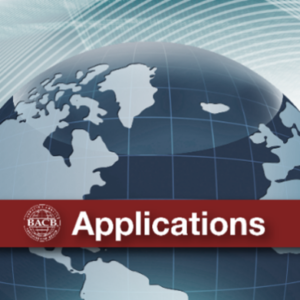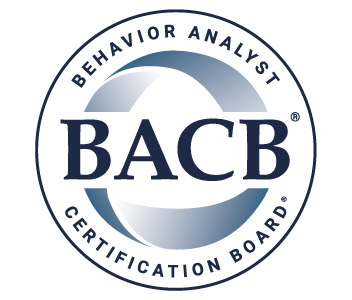
On January 1, 2023, a number of changes to our international focus that we first announced in December of 2019 went into effect (see Recent Changes to the BACB’s International Focus). To help you navigate these changes, we’ve answered several of your key questions. Let’s address the most important one before we get started:
Who might be affected by these changes to the BACB’s international focus?
These changes primarily impact new BACB applicants and current BACB certificants, supervisors, trainers, and faculty members who work and/or reside outside of the following authorized countries: the United States (US), Canada, Australia, and the United Kingdom (UK).* If this describes you, read on to find out how you might be affected.
Applying for BACB Certification
Q: I understand that as of January 1, 2023, new BACB certifications are only available to residents of authorized countries. Who’s considered a resident?
A: To be considered a resident of an authorized country, you must physically reside in the US, Canada, Australia, or the UK. The BACB will confirm that you’ve met this requirement by checking the address listed in your BACB account. The BACB may also verify your residency by requesting additional documentation, such as your government-issued identification, work records, driver’s license, or utility bills from the time of application. Please note that using a false or temporary address to wrongfully meet this requirement may lead to the invalidation of your eligibility or certification.
Q: I earned my degree outside of an authorized country and then moved to an authorized country. Will I meet the degree requirements when I apply for certification?
A: It depends. The fact that you earned a degree outside of an authorized country doesn’t necessarily disqualify you from becoming certified if you now reside in an authorized country. If your degree meets the degree requirements in effect at the time of application, it likely qualifies. Visit the BCBA or BCaBA Handbook to explore our current degree requirements.
Q: I completed my coursework and/or fieldwork outside of an authorized country and then moved to an authorized country. Will I meet the coursework and/or fieldwork requirements when I apply for certification?
A: It depends. So long as your coursework and/or fieldwork meets all of the requirements in effect at the time of application (regardless of where it was completed), it should qualify. Please review the BCBA or BCaBA Handbook for a full breakdown of current coursework and fieldwork requirements.
Note for those completing VCS coursework outside of an accredited educational institution: Coursework from a Verified Course Sequence approved under an Alternative Pathway in which courses are taught outside of an accredited educational institution must have been completed before January 1, 2023.*** As of July 1, 2023, the BACB will no longer accept non-university coursework. Any individual who wishes to pursue BCBA or BCaBA certification with coursework from such a VCS must submit a fully approvable application** by June 30, 2023.
Residing or Practicing Outside of Authorized Countries
Q: I’m already certified, but I don’t reside in an authorized country. Is my certification still valid?
A: Currently, yes. However, please keep in mind that as countries develop their own professional programs and/or as laws change, certificants in authorized and unauthorized countries may be impacted.
Q: I’m already certified, but I don’t reside in an authorized country. How should I refer to my certification after this date?
A: Since you are already certified, you may continue using and referring to your certification as you have previously.
Q: My certification has lapsed, and I don’t reside in an authorized country. Can I still qualify for certification via the past certification option?
A: No. If your certification has lapsed, you must be a resident of an authorized country to apply for a new BACB certification.
Q: I don’t reside in an authorized country. Can I apply for the doctoral designation?
A: Currently, you may apply for the doctoral designation if you hold an active BCBA certification. Subject to local laws and regulations and where feasible, the BACB will continue to accept doctoral designation applications from any active BCBA regardless of whether they are in an authorized country. Should laws or feasibility change, affecting our ability to offer the doctoral designation to unauthorized countries, the BACB will give the profession a year’s advance notice. Shorter notice may be necessary in regions subject to US business/trade sanctions.
Q: I’m an active BCBA or BCaBA consulting in another country. Can I continue consulting?
A: Yes, you may continue consulting.
Serving as a Supervisor or ACE Provider
Q: I’m an RBT or BCaBA and a resident of a country in which new BACB certifications are no longer available. Can I receive supervision remotely from a certificant in another country, regardless of whether that country is authorized?
A: Yes, as long as the supervision meets all of the applicable supervision requirements in effect at that time.
Q: I’m a certificant and a resident of a country in which new BACB certifications are no longer available. Can I provide RBT or BCaBA supervision remotely to someone in another country, regardless of whether that country is authorized?
A: Yes. However, you must adhere to the Ethics Code for Behavior Analysts to ensure that your supervision is effective. You must also make sure that you and your supervisees comply with all BACB supervision requirements and any other relevant laws and regulations where supervision occurs (e.g., where the supervisor, supervisee, and client are located).
Q: I’m one of the only BCBAs in the country in which I reside. Is there a limit to how many RBT or BCaBA certificants I can supervise?
A: While there is no definitive answer to this question, we encourage you to consider Section 4.03 of the Ethics Code for Behavior Analysts, which requires behavior analysts to only take on a number of supervisees and trainees that allows them to provide effective supervision and training. This means that your supervisory volume must not impact your effectiveness or your ability to meet the RBT or BCaBA ongoing supervision requirements detailed in the Ongoing Supervision sections of the RBT and BCaBA Handbooks. For example, you need enough client knowledge to inform the RBT or BCaBA’s work, provide direction, and contract with any client to whom the RBT is providing services.
Q: I do not reside in an authorized country. Can I apply for or maintain ACE Provider status?
A: Yes, so long as you meet and comply with all of the requirements detailed in the ACE Provider Handbook.
Thank you for taking the time to learn more about these recent and upcoming international changes. We hope that you find this information helpful. For further guidance, visit our International Development & Support web page. If you have any questions, please reach out through the Contact Us Form.
*Individuals who reside in the UK may continue to apply for BACB certification through 2025. This date may be moved earlier if the UK Society for Behaviour Analysis achieves national recognition for UK behavior analysts, develops its own credentialing system, and transitions current BACB certificants into the new UK system.
**An approvable application is one that contains all of the necessary elements for approval. For example, an approvable BCBA or BCaBA application would include the following:
- payment in full
- complete and accurate documentation showing that all fieldwork and coursework requirements have been met
- proof of an acceptable degree that meets all applicable requirements, including official transcript(s) with conferral dates
- a degree equivalency evaluation if applicable
***When coursework is no longer acceptable, it may not be used to mark the onset of fieldwork.
